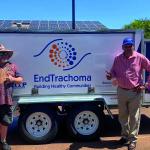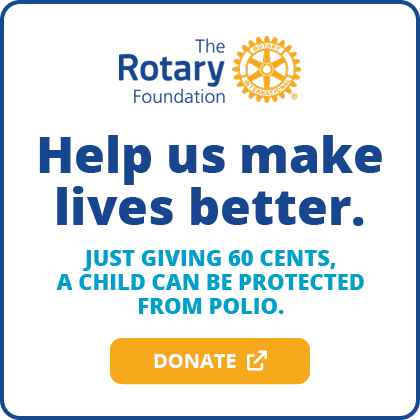Improving the mental health of 0-12-year-olds
By Emeritus Professor Michael Sawyer OAM
When planning your public relations campaigns, make it as easy as possible for people to get involved and say yes to Rotary.
Over the past 20 years, recognition of the importance of good health for educational and later career success has encouraged substantial research aimed at identifying health conditions that have the greatest adverse impact on children and adolescents. To do this, the impact of different health conditions is compared based on their prevalence, level of disability, and cost (in both human and fiscal terms). This work has consistently shown that on all three dimensions, mental disorders experienced by children rate extremely highly. Key facts in this area include:
- Approximately 14 per cent of children in Australia (equivalent to approximately 580,000 children aged less than 15 years) have a mental disorder at any one time.
- Australian students with Attention-Deficit/Hyperactivity Disorder (ADHD) have significantly lower levels of academic achievement compared to students with no mental disorder. In Year 3, children with ADHD are between six months to one year behind their peers and by Year 9 this gap has increased to between two and four years.
- Approximately 50 per cent of mental disorders in all age groups have their onset before the age of
14 years. - The financial costs imposed by mental disorders on non-health agencies such as education, social service, and justice, and on individual families, are very high.
There is also good evidence that the number of children developing new mental disorders and the number with existing disorders is not declining.
In light of these facts, Australian Rotary Health has made a decision to support research activities designed to generate new knowledge that has the potential to reduce risk for the onset of new disorders among children, and to provide more effective help for those with existing disorders.
Two broad approaches are being used to achieve these goals:
1. Build the child mental health research talent pool through the use of scholarships awarded for PhDs, and for Post-Doctoral Fellowships, and
2. Expedite improved researcher success with applications to major funding bodies (e.g. NHMRC) by funding research projects led by new researchers, and for innovative new research projects led by experienced researchers.
Emeritus Professor Michael Sawyer OAM was chair of the Australian Rotary Health Research Committee from 2004-09. Following his tenure on the committee, which he joined in 1996, in 2010 Michael was invited to join the ARH Board as the Honorary Research Advisor – a position he still retains.
Related news
Dubbo West Community Carols by Candlelight
Celebrate the festive season at Dubbo’s Carols by Candlelight, promising fun, music and the big man himself.
Sanitation solutions in Sumba
By PDG John KevanRotary Club of Mandurah Districts, WA In East Sumba, where the financial capacity to support water and health requirements for villages in remote areas is severely limited, Fair Future Foundation has been successfully providing materials and training to enable villagers to build their water and sanitation facilities for more than 15 years. […]
Queanbeyan delivers U-Turn the Wheel pilot program
Throughout May, the Rotary Club of Queanbeyan, NSW, held the 2024 pilot program of U-Turn the Wheel (UTTW) at three local high schools in Queanbeyan – The Anglican School at Googong, Karabar High School, and Queanbeyan High School. Overall, approximately 125 students took part in the one-day program. Feedback from students and staff was positive, […]
Join our newsletter for the latest updates
"*" indicates required fields


